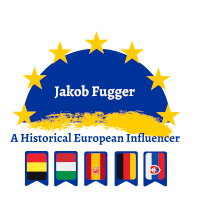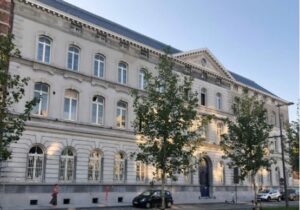Jakob-Fugger-Gymnasium, Augsburg (Germany)
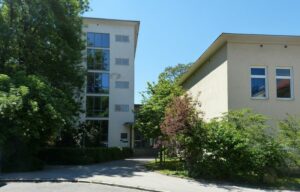 The “Jakob Fugger” secondary school is a modern school with a long tradition, located in the city centre of Augsburg. The history of the school began in 1879 with the foundation of the “Höhere Handelsschule”. It became the present “Jakob-Fugger-Gymnasium” in 1965 to honour the old families of the city of Augsburg and to point out the focus on economic education. Later, a Science and Technology branch was established. At present about 740 students are taught by about 65 colleagues. With qualified teaching methods, various offers of individual support and a wide range of electives the school provides a solid education which meets individual learning requirements and different inclinations and interests. Jakob-Fugger’s impact is still multi-present in Augsburg. Within the framework of the project our students will have the chance to gain further knowledge about the man who gave their school its name. By joining this project, we will also try to dynamize teaching practices, improve the interdisciplinary cooperation between teachers and create a European network to exchange pedagogies on the eTwinning platform or while teachers’ meetings. The project will try to be inclusive in order to involve pupils with learning difficulties and those who have never been abroad before due to social disadvantages. Above that the aim of the project is to train pupils to become open-minded when being confronted to the diversity and to other cultures in Europe.
The “Jakob Fugger” secondary school is a modern school with a long tradition, located in the city centre of Augsburg. The history of the school began in 1879 with the foundation of the “Höhere Handelsschule”. It became the present “Jakob-Fugger-Gymnasium” in 1965 to honour the old families of the city of Augsburg and to point out the focus on economic education. Later, a Science and Technology branch was established. At present about 740 students are taught by about 65 colleagues. With qualified teaching methods, various offers of individual support and a wide range of electives the school provides a solid education which meets individual learning requirements and different inclinations and interests. Jakob-Fugger’s impact is still multi-present in Augsburg. Within the framework of the project our students will have the chance to gain further knowledge about the man who gave their school its name. By joining this project, we will also try to dynamize teaching practices, improve the interdisciplinary cooperation between teachers and create a European network to exchange pedagogies on the eTwinning platform or while teachers’ meetings. The project will try to be inclusive in order to involve pupils with learning difficulties and those who have never been abroad before due to social disadvantages. Above that the aim of the project is to train pupils to become open-minded when being confronted to the diversity and to other cultures in Europe.
Základná škola, Moskovská 2, Banská Bystrica (Slovakia)
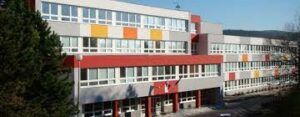 Primary and middle school Moskovská 2 in Banská Bystrica provides pupils with general primary and lower secondary education. There are 576 pupils and 71 staff members. The school has recently started to implement innovations and changes focusing the attention on the key competences for future studies, work and life (changing school curriculum from content focus to pupils’ skills, moving from memorising to developing presentation skills, supporting intersubject relations through connecting areas). Regarding the effort to facilitate skills to cooperate, communicate in foreign languages, think critically and to solve problems the teachers are searching for opportunities to involve pupils in projects on an international level. As for the teachers, introducing new approaches to teamwork, interdisciplinary cooperation, the possibility of the exchange of good practices through opening the school for cooperation with European schools, new opportunities for their professional growth will open.
Primary and middle school Moskovská 2 in Banská Bystrica provides pupils with general primary and lower secondary education. There are 576 pupils and 71 staff members. The school has recently started to implement innovations and changes focusing the attention on the key competences for future studies, work and life (changing school curriculum from content focus to pupils’ skills, moving from memorising to developing presentation skills, supporting intersubject relations through connecting areas). Regarding the effort to facilitate skills to cooperate, communicate in foreign languages, think critically and to solve problems the teachers are searching for opportunities to involve pupils in projects on an international level. As for the teachers, introducing new approaches to teamwork, interdisciplinary cooperation, the possibility of the exchange of good practices through opening the school for cooperation with European schools, new opportunities for their professional growth will open.
adress: Moskovská 2, SK-974 04 Banská Bystrica
mail: coming soon
link to the schools website: Základná škola, Moskovská 2
Oberschulzentrum Sterzing, Sterzing (Italy)
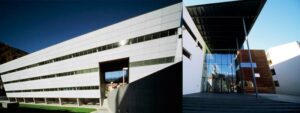 The Oberschulzentrum Sterzing is an upper-secondary school with almost 400 students aged 14-18 and about 60 teachers. The school is located in the town of Sterzing, which has around 6,400 inhabitants and is situated in the very North of Italy, about 15 km south of the Brenner border. Our students come from Sterzing and its surrounding valleys. Our school offers four branches of education: a language branch, a sports branch, a science branch and an economic branch. After attending our school for five years, students graduate by taking the national A-level exam at the age of 18. The language of instruction is German, and Italian is taught as a second language. The fact that we are a relatively small school guarantees personal and individual support for the students.
The Oberschulzentrum Sterzing is an upper-secondary school with almost 400 students aged 14-18 and about 60 teachers. The school is located in the town of Sterzing, which has around 6,400 inhabitants and is situated in the very North of Italy, about 15 km south of the Brenner border. Our students come from Sterzing and its surrounding valleys. Our school offers four branches of education: a language branch, a sports branch, a science branch and an economic branch. After attending our school for five years, students graduate by taking the national A-level exam at the age of 18. The language of instruction is German, and Italian is taught as a second language. The fact that we are a relatively small school guarantees personal and individual support for the students.
address: Kanonikus-Michael-Gamper-Platz 2, I-39049 STERZING
mail: os-osz.sterzing@schule.suedtirol.it
link to the school website: Oberschulzentrum Sterzing
Onze-Lieve-Vrouwecollege Plus, Antwerp (Belgium)
The Onze-Lieve-Vrouwecollege Plus (College of Our Dear Lady) has been one of the most prestigious institutions in the Antwerp school landscape for over 150 years. More than 750 pupils from 35 nations attend our grammar school.
Despite the austere appearance of the buildings, one enters through the school gates into a world full of activity, where studies, sports and after-school activities are offered to the pupils in perfect harmony. In the tradition of the Jesuits, the college has built up a reputation of high-quality and multifaceted education in which every pupil can fully develop their talents. Although we are a catholic school, all young people – no matter their religion – are most welcome. We are firmly convinced that this diversity offers a chance for later life. Our school also has a tradition of taking part in several “Olympiads” for different subjects such as mathematics, physics, biology and Latin. These are competitions, organised all over Flanders with the aim of selecting the best pupils. We are proud that we have regularly been able to send pupils to the finals.
adress: Frankrijklei 91, 2000 Antwerp
mail: info@olvcplus.be
link to the schools website: Onze-Lieve-Vrouwecollege Plus
Instituto de Educación Secundaria Pablo Ruiz Picasso, Almadén (Spain)
The IES “Pablo Ruiz Picasso” is an institute of secondary education with modern facilities. The school’s educational offer includes two levels, the Compulsory Secondary Education (for ages 12-16) and the Bachillerato (for ages 16-18). The number of students is currently on the decrease, now there are only 290 students, as the area has experienced a population loss due to the closure of the mercury mine of Almadén in 2003. Since then, the town has been struggling to overcome the economic difficulties. We believe that our students can benefit from the participation in a European programme as they have little opportunity to travel abroad and develop an open-minded attitude towards other people and cultures. Another advantage is that they can learn responsibility towards their own heritage and its conservation and promotion, thus becoming active actors in the future economic and political life of the town. Since 2012 we have been a UNESCO World Heritage site.
adress: Avenida de España nº 68, ES-13400 Almadén
mail: coming soon
link to the schools website: IES Pablo Ruiz Picasso
